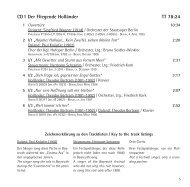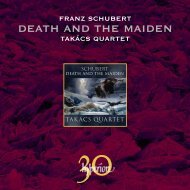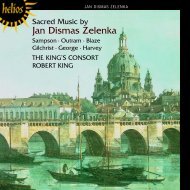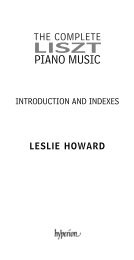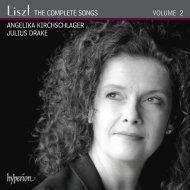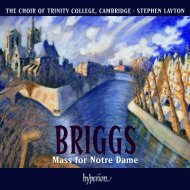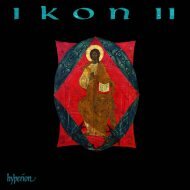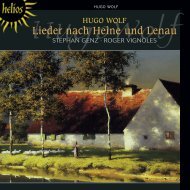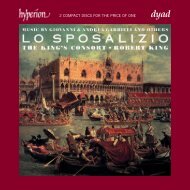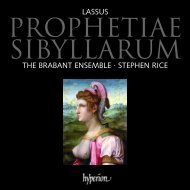CHORAL MUSIC BY JONATHAN DOVE - Abeille Musique
CHORAL MUSIC BY JONATHAN DOVE - Abeille Musique
CHORAL MUSIC BY JONATHAN DOVE - Abeille Musique
Create successful ePaper yourself
Turn your PDF publications into a flip-book with our unique Google optimized e-Paper software.
© Hugo Glendinning<br />
<strong>JONATHAN</strong> <strong>DOVE</strong><br />
wonderful coup de théâtre at the words ‘God in man’,<br />
which temporarily interrupts the flow and has all voices<br />
high and in a remote key from what has immediately<br />
preceded it—a magical effect.<br />
The Star-Song is another piece for Christmas which,<br />
like Wellcome, all wonders, uses different characters to<br />
create a little drama. In this case it is a dialogue between<br />
4<br />
the star in the east and a chorus (perhaps representing the<br />
shepherds). The poem is by Robert Herrick (1591–1674)<br />
and he colourfully has the chorus asking where Christ is<br />
to be found. The assumption is that he will be laid in<br />
lily-banks or in ‘some ark of flowers’ or ‘in the morning’s<br />
blushing cheek’ and so on. The star replies emphatically<br />
‘No’, and tells them that he is simply at his mother’s<br />
breast. The chorus then replies ecstatically that ‘He’s seen,<br />
He’s seen!’ and that they will give him ‘wassailing’ and<br />
‘choose Him King, and make His mother Queen’. It is a<br />
wonderfully upbeat poem and Dove’s response to it is<br />
simple and effective. The organ part creates a ‘bright and<br />
twinkling’ star effect which continues throughout as<br />
another moto perpetuo. The tenors and basses are the<br />
chorus and the upper voices represent the star. When the<br />
moment of recognition comes the whole choir sings together.<br />
The use of a constant metre keeps the excitement<br />
buzzing, and the ending simply flies into the air.<br />
The Three Kings was commissioned by the choir of<br />
King’s College, Cambridge for its annual Festival of Nine<br />
Lessons and Carols in the year 2000. For the text Dove<br />
chose a fascinating poem by Dorothy L Sayers called ‘The<br />
Three Kings’. It is written in a quasi-medieval style with an<br />
‘O balow, balow la lay, / Gifts for a baby King, O’ refrain.<br />
Sayers portrays her three kings in the three ages of man—<br />
young, in the prime of life, and very old. With perhaps an<br />
unexpected twist and a departure from received imagery<br />
Sayers portrays the young king as doleful and bringing<br />
myrrh; the prime-of-life king is a solemn priest who brings<br />
incense, ‘sad and sweet’, and it is the very old king who<br />
brings the handfuls of gold which are not money but gaud,<br />
baubles and glittering toys for a baby boy. Dove simply<br />
reflects these different personalities. The first is sung by<br />
two soprano soloists accompanied by the choir singing the<br />
words of the refrain. For the second king the speed<br />
increases a little but upper voices still sing the descriptive



